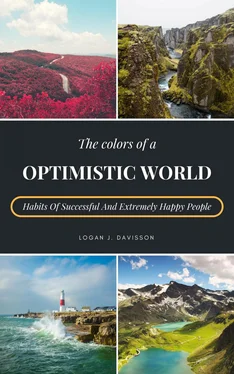The actual idea for vitamin water came from J. Darius Bikoff, the founder of Glaceau and a well-known triathlete. Due to a cold he enriched his drinking water with vitamin C and zinc in order to recover more quickly. Today this drink is available under the name Defense, it is vitamin water with apple and raspberry flavour. Not all soft drinks are really low in calories. Some of them have stevia added as an alternative sugar, but normal household sugar may also be included in the vitamin water products on sale.
Vitamin water has long been a favourite drink among professional athletes, but it is also frequently used in mountaineering, among other things. Depending on the variety and brand, vitamin C, vitamins B, vitamin E, calcium and magnesium are added to the water. However, biotin, sodium and pantothenic acid can also be contained in the vitamin waters. These are functional drinks, which are basically based on table water, but contain vitamins, minerals, electrolytes and fruit and colour aromas. Electrolytes are also very important for our organism, as they protect us from heat damage, which can threaten our lives together with a lack of fluids. The most important biological electrolytes include calcium, chloride, hydrogen carbonate, potassium, magnesium, sodium and phosphate.
Electrolytes play an important role in our body, as they are mainly responsible for the spread of nerve excitation. They are also known as minerals or ions and are contained in our organism only in limited quantities. These substances decompose into positively and negatively charged ions and are therefore also able to conduct electricity in an aqueous solution. As they have a direct influence on the tension of the cell membranes, they are also responsible for the various processes of contraction in our muscles. A lack of minerals can therefore be expressed through painful muscle cramps. The most important ions in our organism are bound in water by our body. If we sweat a lot, we lose a lot of electrolytes. This is also the reason why we have to drink a lot, especially on hot days, otherwise the electrolyte level can fall dangerously. This leads to dehydration, which is associated with dizziness, nausea, dizziness and heart rhythm disorders.
Especially competitive athletes have to pay particular attention to their electrolyte levels, as they are naturally exposed to extreme loads and therefore also have a much higher demand for fluids. They are therefore dependent on a liquid absorption with electrolytes, which is why they prefer isotonic drinks in sports.
Effectiveness of electrolytes on the organism
Electrolytes or minerals are not only lost in competitive sports. Also frequent vomiting, diarrhoea or excessive sweating can lead to a deficiency. Since our body is unable to produce calcium, chlorine, potassium, magnesium and sodium on its own, it is dependent on food intake. In principle, our organism can regulate the correct and necessary composition of minerals through hormones, because, for example, if the electrolyte content is too high, then it is also excreted more strongly. Electrolytes can accumulate, especially if kidney function is impaired. They are then no longer sufficiently excreted from our body. Taking medication can also significantly affect the mineral balance and disrupt the electrolyte level. Malnutrition, an increased alcohol consumption, as well as a disturbed function of the endocrine glands also lead to a lack of electrolytes.
An electrolyte fault occurs when the measured value deviates significantly from the standard level of the electrolytes. If this is the case over a longer period of time, it may lead to hyperacidity, an impaired nervous system and in the worst case to death due to the failure of the organs. Severe electrolyte disorders are usually the case with sodium, calcium or potassium and are treated as medical emergencies.
A slight disorder, such as hyperacidity, can usually be easily compensated for by consuming water or vitamin water. If the lack of water or dehydration is already too advanced and can no longer be compensated
by drinking, then an infusion containing electrolytes is indispensable. Even a water shortage of only two percent in our body can cause symptoms such as dry mouth, headaches, little urine, low blood pressure and dizziness. Other symptoms are impaired vision, aggression, mental confusion and fainting. If the lack of water is not remedied, the tongue swells strongly and delirium occurs. However, those who ensure optimal fluid intake throughout the day usually have no problems with this. If you do not necessarily want to drink vitamin water, you should look for vegetables and fruit containing pectin as well as foods rich in dietary fibres. They are able to bind water and then release it slowly through the intestines.
Electrolytes control our water balance in the organism, which is important for the bile, as well as for the stomach and intestinal fluid, the synovial fluid and also for the brain water. They are of great importance for almost all physical processes, as they are located inside and outside the body cells. By the way, our nervous system relies on electrolytes to pass on information and impulses. Through a balanced diet, sufficient minerals can be absorbed. They are found in fresh fruit and vegetables as well as wholemeal products. However, it is essential to prepare them gently, otherwise the valuable ingredients will be lost if vegetables are boiled too long, for example, or washed too long under the tap. By the way, desserts and white flour products contain virtually no minerals, which is why consumption of these foods should be limited. Vitamin water is therefore highly recommended, as it provides our organism with valuable nutrients and can therefore really prevent many diseases.
Why is water so important for the metabolism?
Water is, as is generally known, the source of life, and our body is NO exception. However, most people do not worry about their own drinking habits at all and only drink if they notice a pronounced feeling of thirst. For our organism, however, drinking is almost more important than eating. A human being can survive several weeks without food, but only a few days without fluid intake, since almost two thirds of our body consists of this vital element. Water is the means of transport for blood, sweat and also for urine. Also, it is a necessary solvent for most pulps. The body temperature is regulated by the water contained, by sweating and sweat. In order to maintain the liquid level, the constant losses must be regularly compensated by an optimal liquid supply, since we also excrete large quantities of it daily, without paying much attention to it. Part of our needs is covered by food, but it is far from enough on its own. It is not for nothing that the recommended amount of liquid is at least two litres of water a day. By the way, we only feel thirsty when there is already a fluid deficit!
A water loss of only two percent, of our body weight, can contribute to the fact that the efficiency is strongly impaired by it. We get thirsty when half a percent is already missing. Although our organism is able to compensate for a slight lack of water, this is very dangerous for our health in the long run. It leads to dry skin and dried out mucous membranes, which makes us much more susceptible to bacteria and viruses. A lack of fluids also leads to constipation, urinary infections and kidney problems. If we drink far too little, our body is also less supplied with blood, which can lead to a loss of brain performance and to concentration disorders. Lack of fluid in our body is not only expressed by thirst, but also by loss of appetite, dry mouth, headaches and nausea. Our organism sounds a clear alarm if it is not sufficiently supplied.
The water requirement is higher during heavy sweating, physical exertion, diarrhoea or vomiting, fever and also during a diet. However, older people in particular drink very little, as the feeling of thirst decreases significantly with age. In many cases, however, they simply forget to drink or are afraid of having to go to the toilet more often at night. The German Nutrition Society therefore recommends a dosage of 2.25 litres for older adults in particular, one third of which should be part of solid food. So dairy products, salads and also fruit. The other two thirds should be made up of suitable drinks, such as vitamin water or stomach-friendly teas.
Читать дальше












